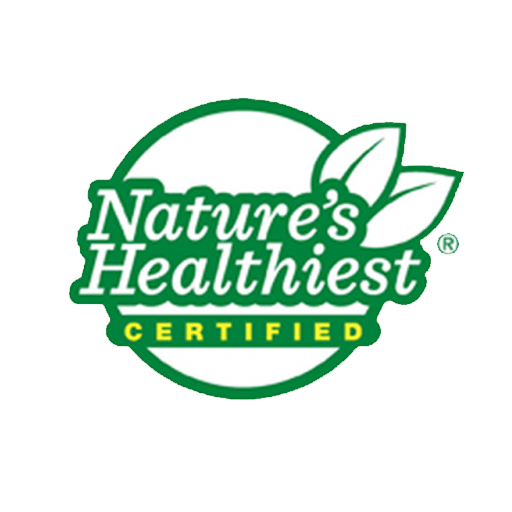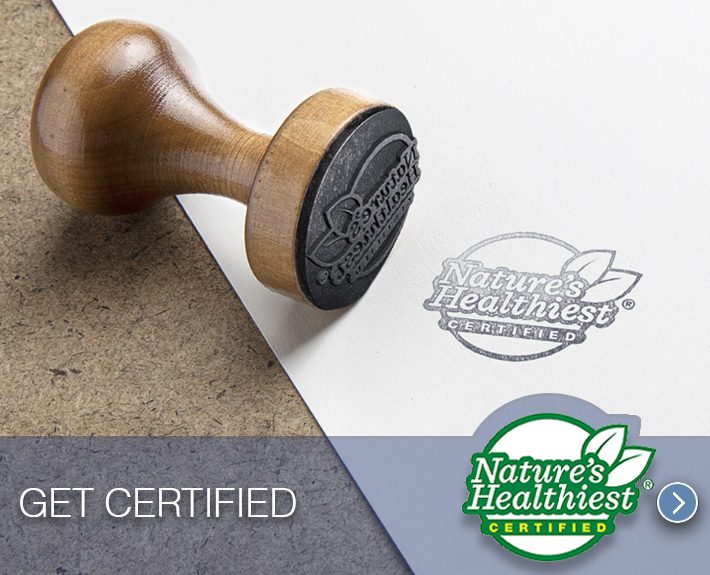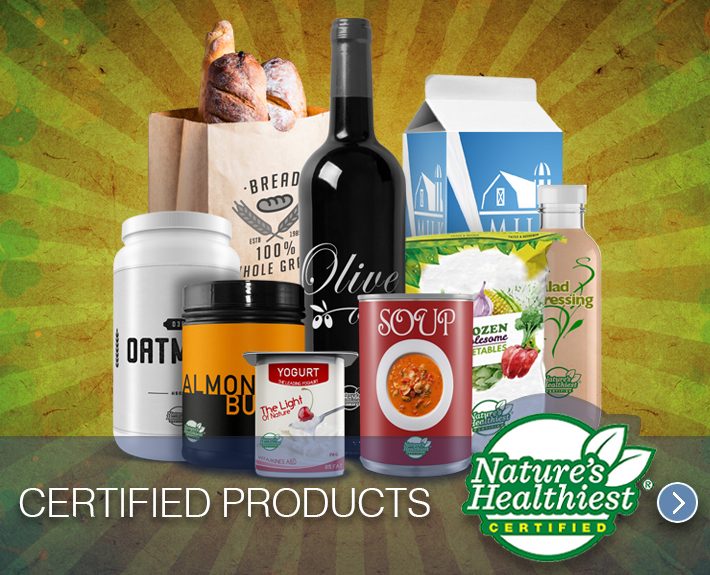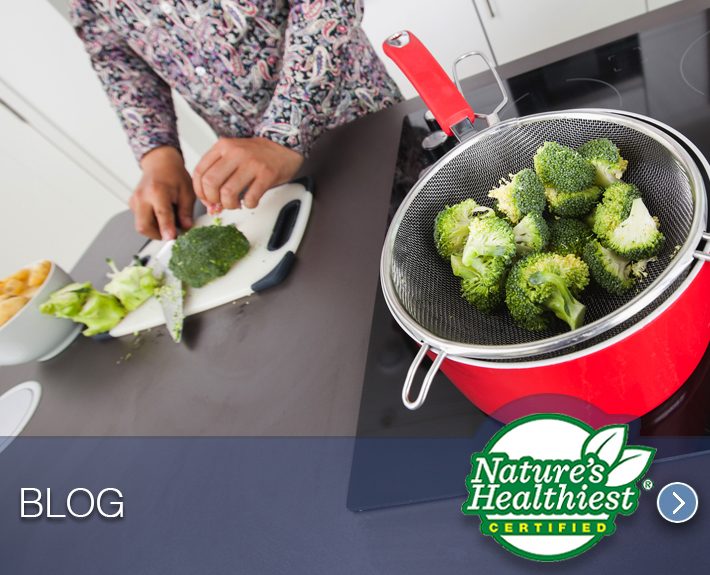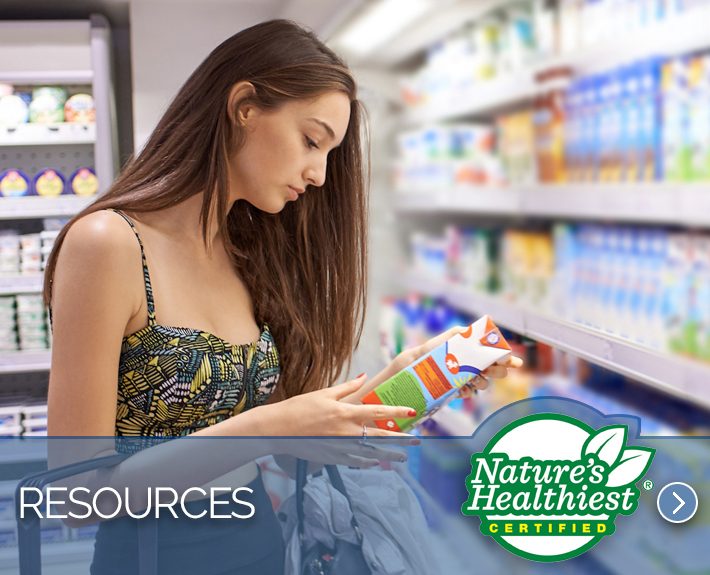Nutrition Myths Debunked
Myth #1: Are organic foods always healthier than conventional foods?
 Answer: Organic foods are often a healthier alternative to conventional foods. They are grown without pesticides, do not contain artificial ingredients, and are nonGMO among other things, but unfortunately they are not always nutritionally superior. There are organic sodas that contain just as much sugar as regular sodas, there are organic cereals that are not made with whole grains, and there are organic cookies and baked goods that are high in sugar. Nature’s Healthiest® Certification is here help guide you towards the most healthy and nutritious foods for you and your family.
Answer: Organic foods are often a healthier alternative to conventional foods. They are grown without pesticides, do not contain artificial ingredients, and are nonGMO among other things, but unfortunately they are not always nutritionally superior. There are organic sodas that contain just as much sugar as regular sodas, there are organic cereals that are not made with whole grains, and there are organic cookies and baked goods that are high in sugar. Nature’s Healthiest® Certification is here help guide you towards the most healthy and nutritious foods for you and your family.
Myth #2: Are egg yolks bad for you?
 Answer: The short answer is no. It is important to consider the quality of the eggs when purchasing eggs to ensure you are eating the best egg yolks. Not all egg yolks are created equal and the nutrition profile of an egg yolk is reflective what the chicken was fed and how it was raised. Nature’s Healthiest® Certification will help you select the best eggs by doing the homework for you. The labeling most important in selecting eggs is “Good source of Omega-3”. This tells us what the chicken was fed, most typically, flaxseed. Organic is also an excellent parameter. Be cautious of “Cage Free” labeling as this term may not always mean that the chicken was allowed to run free and be exposed to any amount of sunshine. See our Definitions you need to Know Section for more on food labeling terms.
Answer: The short answer is no. It is important to consider the quality of the eggs when purchasing eggs to ensure you are eating the best egg yolks. Not all egg yolks are created equal and the nutrition profile of an egg yolk is reflective what the chicken was fed and how it was raised. Nature’s Healthiest® Certification will help you select the best eggs by doing the homework for you. The labeling most important in selecting eggs is “Good source of Omega-3”. This tells us what the chicken was fed, most typically, flaxseed. Organic is also an excellent parameter. Be cautious of “Cage Free” labeling as this term may not always mean that the chicken was allowed to run free and be exposed to any amount of sunshine. See our Definitions you need to Know Section for more on food labeling terms.
For an excellent overview on eggs and cholesterol and health, read the following article: https://www.hsph.harvard.edu/nutritionsource/eggs/?utm_source=SilverpopMailing&utm_medium=email&utm_campaign=Update%2003.03.2017%20(2)&utm_content
Myth #3: Frozen foods are over processed and less nutritious than fresh foods.
 Answer: With our busy lives it’s not always possible to eat only fresh foods and often times frozen foods are the next best thing and convenient. They are harvested at the peak of ripeness and quickly handled which minimizes processing to retain nutrition. Frozen foods such as pre-chopped frozen fruits and vegetables provide comparable nutrients and on occasion higher nutrients than fresh. Be careful though, not all frozen packages are healthy for you and often contain added sugars, sodium, and fat. Nature’s Healthiest® will take the guess work out of this. We carefully look at all the ingredients to ensure proper ratios and examine scientific literature to attest that only the most nutritious foods are certified.
Answer: With our busy lives it’s not always possible to eat only fresh foods and often times frozen foods are the next best thing and convenient. They are harvested at the peak of ripeness and quickly handled which minimizes processing to retain nutrition. Frozen foods such as pre-chopped frozen fruits and vegetables provide comparable nutrients and on occasion higher nutrients than fresh. Be careful though, not all frozen packages are healthy for you and often contain added sugars, sodium, and fat. Nature’s Healthiest® will take the guess work out of this. We carefully look at all the ingredients to ensure proper ratios and examine scientific literature to attest that only the most nutritious foods are certified.
1. Vitamin retention in eight fruits and vegetables: a comparison of refrigerated and frozen storage. J Agric Food Chem. 2015 Jan 28;63(3):957-62. doi: 10.1021/jf5058793. Epub 2015 Jan 13.
If you have a question on a nutrition topic or "myth," please contact us and we will add it to our list of Nutrition Myths Debunked!
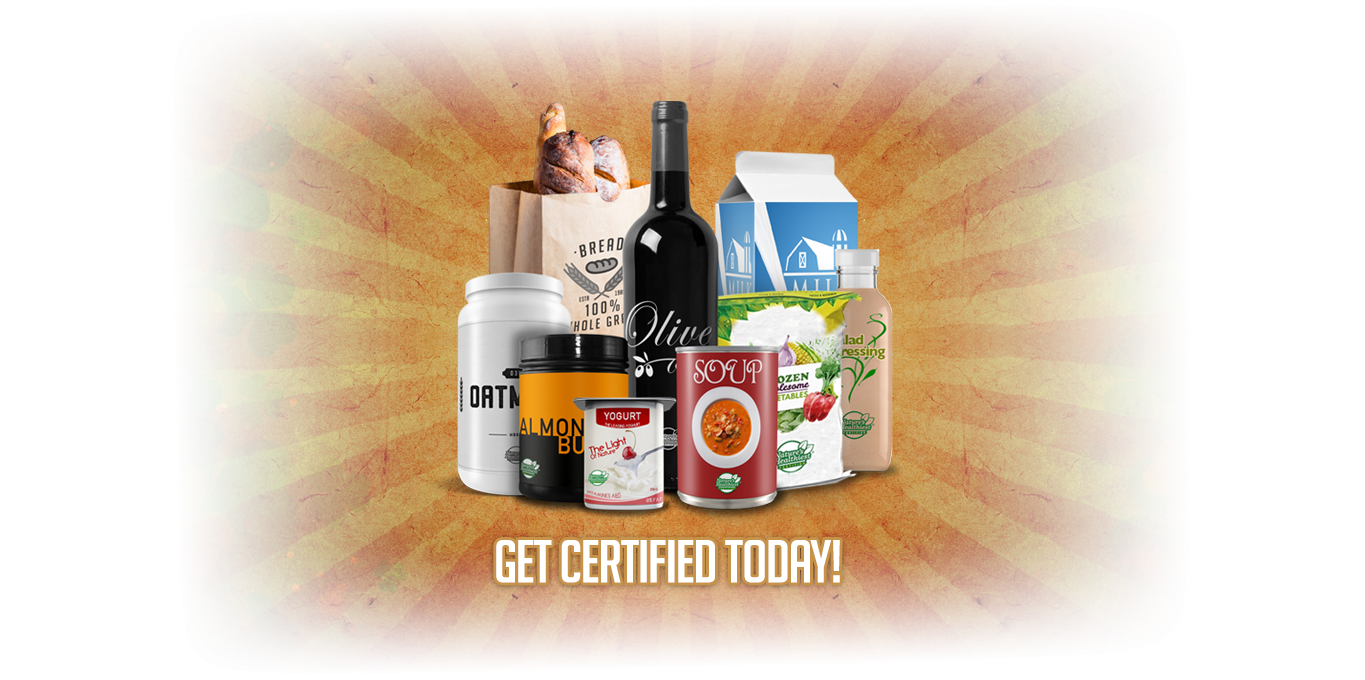
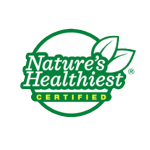
Independent. Honest. Trusted.
A Food Certification You Can Trust!
